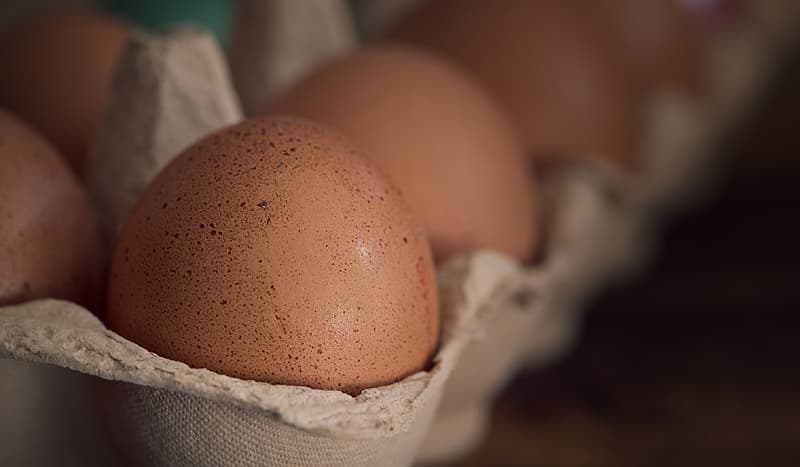Cook The Perfect Soft Boiled Egg

You can either eat your egg hard, runny or soft. The difference between them can involve a tiny difference in cooking time. So how do you get the perfect soft boiled egg?
Soft-boiled eggs are a quick and easy meal to make; you can have them for breakfast, lunch or dinner, served with bread or toast soldiers. However, in order to get the best possible result you will need a few tips for cooking boiled eggs. Cooking boiled eggs may seem like a simple task – however, countless people have tried cooking boiled eggs and have ended up either not cooking them for long enough, or overcooking them.
The first thing to take into account is that the eggs are not actually boiled, this is a common misconception, they should be simmered for a minimum of three minutes, depending on how runny you would like the egg to be. You will need to ensure that the egg is cooked thoroughly enough, without the yolk turning hard. If an egg is not cooked correctly, the white of the egg will still be runny; therefore cooking boiled eggs is very much a timing task.
Pre Cooking
The temperature of the egg before it is cooked is very important. Ideally, an egg should be cooked from room temperature. However, many people tend to keep their eggs in the fridge, then when they are placed into a pan of boiling water; they may crack from the pressure of the extreme temperature change. To this end, it’s a good idea to get your egg(s) out of the fridge half an hour before you intend to use them – or you can run them under warm water for a few seconds. If you do forget to do this however, you can add a dash of vinegar into the cooking water to help prevent cracking.
Age Of Egg
The age of the egg will also determine the eventual result of a soft boiled egg - eggs that are very fresh (less than five days old from the packaging date), can be very difficult to peel; it is therefore recommended that older eggs are more suitable for boiling (although you must check that they are still fit for use – a good way to do this is to place the egg in a bowl of water. If the egg floats to the top, the likelihood is that it has gone bad. If it stays on the bottom of the bowl, it should still be OK to eat).
Size Of Pan
You will also need to consider the size of the pan that you intend to use when cooking an egg. A small pan (or a pan that is large enough for the number of eggs that you intend to cook, but no larger) should be used. This will prevent the eggs from breaking as they hit the sides of the pan, or other eggs in the pan, while cooking. Fill the pan with sufficient water to cover the eggs, plus an additional inch of water, and add a teaspoon of salt. The addition of salt will make the peeling of the egg(s) much easier once cooked.
Pin Prick
As you are bringing the water to the boil, it’s a good idea to make a pinprick in the larger, rounder end of your egg(s) using a pin. As an egg cooks, pressure will build inside, and to this end, your egg may crack. As suggested before, a dash of vinegar can help to prevent cracking, but a pinprick is still recommended as it allows the pressure to escape the egg. Once the water has reached boiling point, you should carefully lower the eggs into the pan using a tablespoon or serving spoon.
Large Eggs
For larger eggs, allow 4 minutes cooking time for a runny yolk and for smaller/medium eggs allow around 3.5 minutes. When cooked, carefully lift out the eggs using a spoon and allow around a minute for them to cool before eating.
You Might Like
Cook The Perfect Rice
A cooking rice guide. A useful guide with tips on how to cook perfect rice.How To Cook Pancakes
Cooking pancakes. A useful guide with tips on how to cook the very best pancakes.How Long To Cook A Turkey
Worrying about how long to cook turkey? This guide will tell you what you need to know.Cooking With The Family
The love of cooking, or the nightmare. Read our quick guide on cooking with the family to get a flavour of what's to come.How To Choose The Perfect Gift
Whether its a birthday, anniversary or xmas how do you ensure that your gift hits the spot?
Useful Websites
- Cadbury's Creme Eggs
Chocolate egg with soft 'eggy' inside, used to be available for Easter time only, now you can enjoy it throughout the year with the 'eggventure' - Blue Ribbon Fine Foods Ltd
Who says you cant make omelettes without breaking eggs - finest long life liquid egg producer - Newlay Egg Co. Ltd.
Distributors of eggs, poultry and frozen foods - Egg Heaven 2000
Easter eggs in software, games, web sites and more - Worldwide Butterflies
Source of many kinds of butterflies and moths by post, alive as eggs, caterpillars and chrysalides or purchased for collections and decor - Add Your Website Here